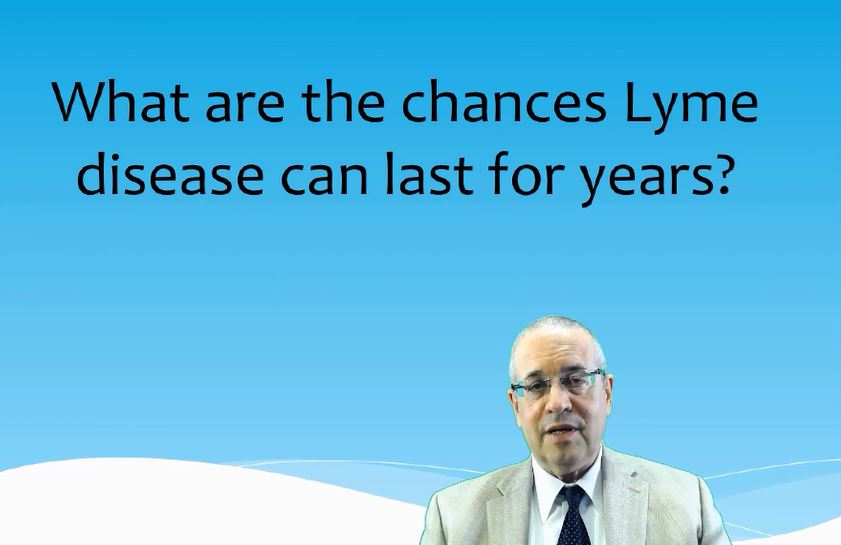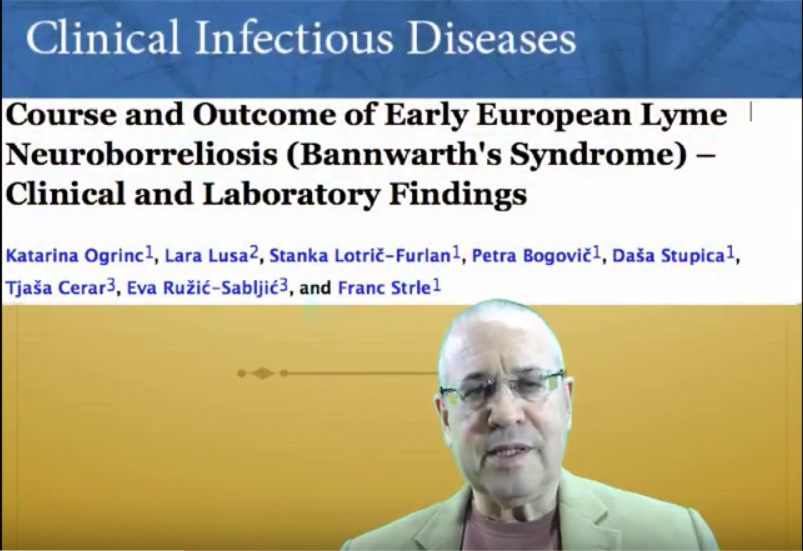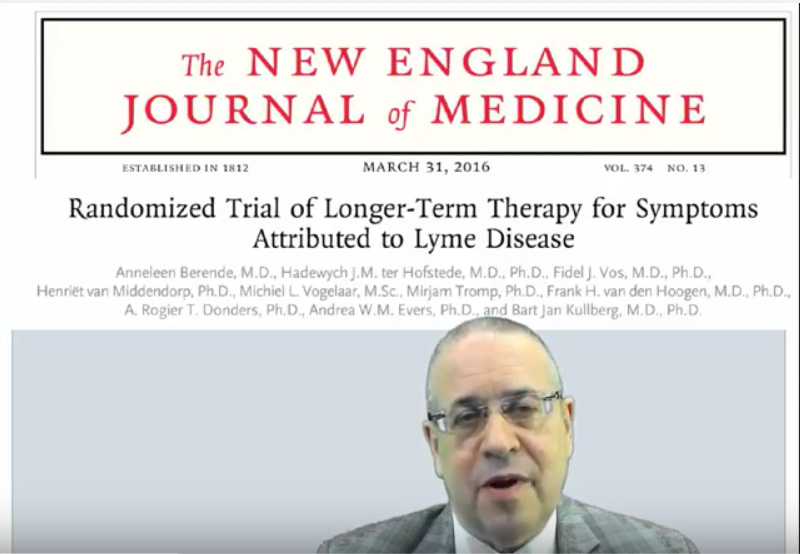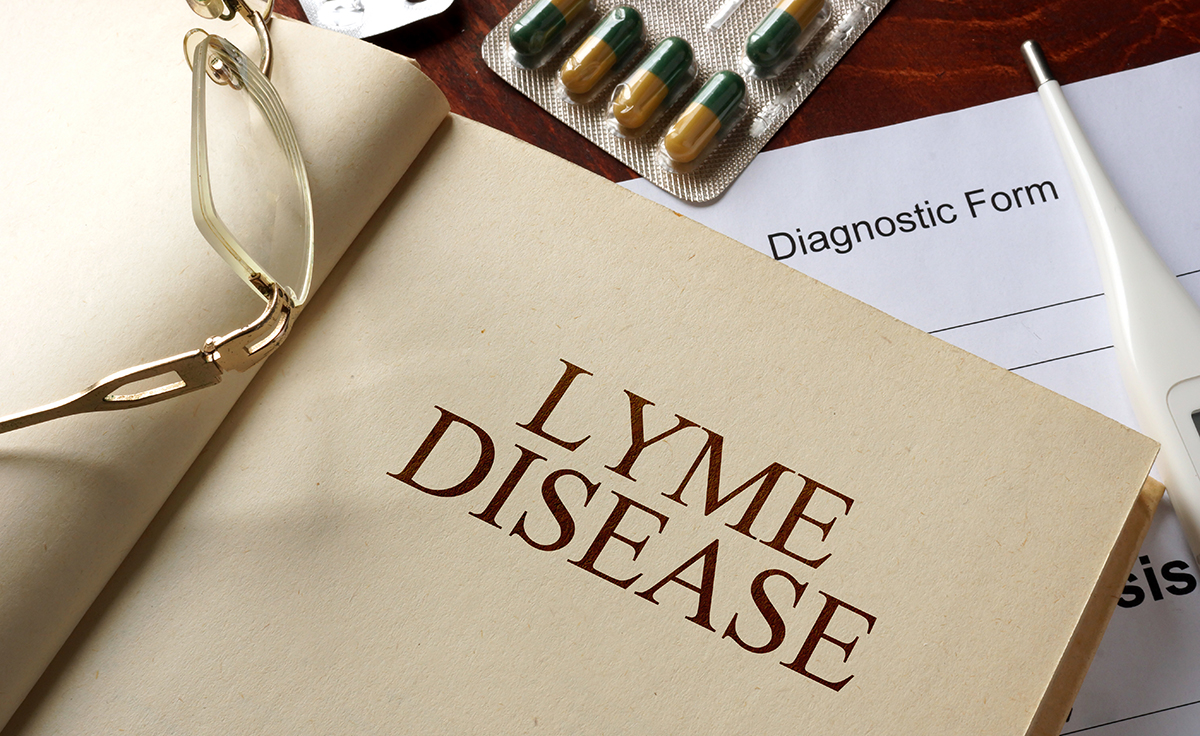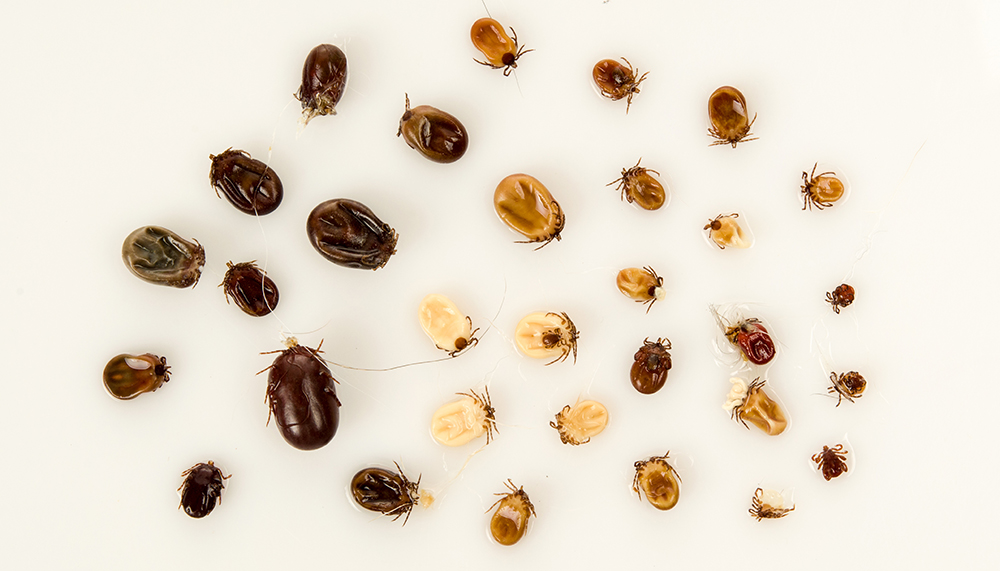Researchers identify novel drug combinations to combat Lyme persister cells
There continues to be treatment failures of Lyme disease (LD) in some patients despite the use of various antibiotic therapies. Researchers from Johns Hopkins University recently published findings from in vitro studies that suggest novel treatment approaches, including multiple drug combinations, may be effective in treating lingering symptoms of LD. [1, 2]
Video Blog: Sick for years with Post-Treatment Lyme Disease Syndrome
A recent study by Weitzner, Visintainer and Wormser, entitled "Comparison of males versus females with culture-confirmed early Lyme disease at presentation and at 11-20 years after diagnosis," concluded that males and females with "culture-confirmed early Lyme disease had similar clinical features, rates of seropositivity and long-term outcomes."
Video Blog: More problems with 2-week course of antibiotics for Lyme disease
There are physicians who continue to advise patients that 2 weeks of antibiotics is sufficient for treating Lyme disease (LD). [1,2] Their position has not changed despite the growing recognition that Lyme disease complications can occur after 2 weeks of antibiotic treatment. These difficulties include chronic neurologic LD, [3] Lyme encephalopathy, [4,5] Post Lyme disease, [6] and Post-Treatment Lyme Disease Syndrome (PTLDS). [7]
Reversible causes of Dementia and Normal Pressure Hydrocephalus
Recent high-profile cases in the news remind us of the need to consider Lyme disease as a possible cause of reversible dementia. For the past several years, legendary singer/songwriter Kris Kristofferson was believed to be suffering from Alzheimer's or dementia. However, in the past week we have learned that the musician's memory problems are instead due to undiagnosed and untreated Lyme disease.
ILADS Lyme disease guidelines rank in top 5% of all research articles, as scored by Altmetrics
The International Lyme and Associated Diseases Society's (ILADS) evidence-based guidelines for the diagnosis and treatment of Lyme disease have ranked in the top 5% of all research articles, as scored by Altmetrics, with more than 107,000 downloads.
Video Blog: Netherlands trial does not support short-term therapy for Lyme disease
A growing number of studies demonstrate that longer-term antibiotic therapy is more effective than short-term treatment for patients with persistent symptoms of Lyme disease. However, an article published in the March 2016 issue of the New England Journal of Medicine suggests just the opposite. I review the author's findings in an All Things Lyme video blog.
JAMA review ignores chronic manifestations of Lyme disease
A review published in the Journal of the American Medical Association (JAMA) examines the efficacy of treatment for Lyme disease, anaplasmosis and babesiosis. [1] After a search yielded more than 4,000 articles, the authors reviewed 361 studies and concluded that a 7- to 14-day course of antibiotics is sufficient in treating early neurologic Lyme disease, as well as certain cases of babesiosis. [1] Unfortunately, the reviewers based their findings on a select group of articles, excluding findings demonstrating chronic manifestations of the disease.
Retraction: Still no evidence that deer flies or deer keds transmit B. burgdorferi or A. phagocytophilum
My friends in the field of entomology have been kind enough to point out the flaws in a recent All Things Lyme blog. The blog discussed the article “Detection of Lyme disease and anaplasmosis pathogens via PCR in Pennsylvania deer ked,” published in the December 2016 issue of the Journal of Vector Ecology.
Don’t dismiss the poor quality of life for individuals with Lyme disease
A study sponsored by the National Institutes of Health (NIH) evaluated the quality of life (QOL) for Lyme disease patients with persistent symptoms and reported that "the only factors significantly associated with long-term symptoms or lower QOL scores were other comorbidities unrelated to Lyme disease." However, upon closer review, the sampling of participants appears skewed, which calls into question the study's accuracy.
Tick-borne co-infections are the norm, not the exception
It has been nearly 40 years since Lyme disease was first identified in a small town in Connecticut. At that time, it was the only tick-borne illness recognized by clinicians. And its symptoms were relatively mild compared to what patients are experiencing today. But over the past two decades, the number of disease-causing agents carried by ticks and the severity of illness that can result has led to calls for more aggressive tick bite prevention efforts and research of co-infections.



